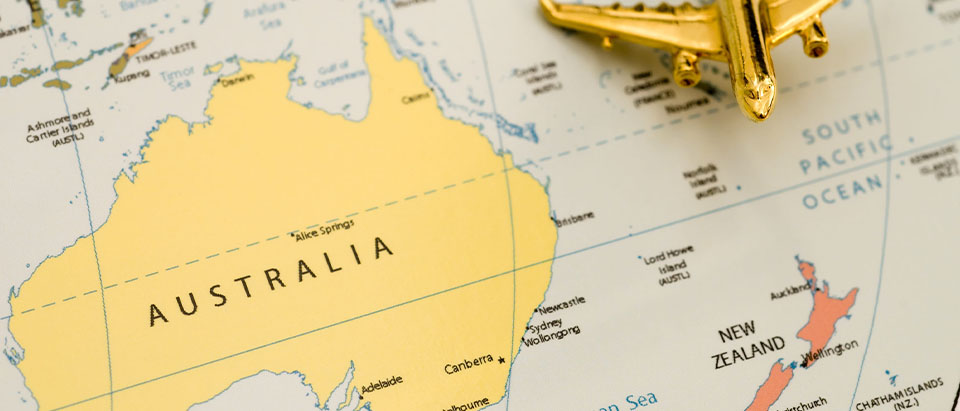KiwiSaver was introduced in 2007 by the Fifth Labour Government to combat the lack of household savings in New Zealand. We had some of the lowest savings per household within developed countries until it was introduced.
Australia on the other hand has had a compulsory retirement saving system since 1992. Therefore, it has a much more mature and large savings balance in comparison to total KiwiSaver funds.
Since its introduction in 2007, KiwiSaver sign up has jumped from 1.1 million members to 3.5 million. Meanwhile, in Australia, around 15.6 million people have a super account (ASFA).
While both serve as retirement savings plans for the less engaged investors, they do follow different strategies and frameworks. We’ll be touching on some of the key differences between the retirement plans, some observations, and the transfer process.
Comparison: KiwiSaver vs Australian Superannuation Funds (MySuper)
Geoffrey J. Warren, a Research Director at the Centre for International Finance and Regulation in Sydney, Australia wrote a detailed report on this subject.
Interestingly, one of the takeaways he found was that the majority of MySuper providers are not-for-profit, unlike most KiwiSaver providers. Moreover, MySuper funds include a much broader range of assets compared to KiwiSaver funds investing largely in listed assets. Further to that point, the report concludes that KiwiSaver offerings skew towards a conservative product range compared to MySuper funds.
KiwiSaver investment options charge a higher percentage fee and a lower (admin) dollar fee compared to MySuper. While this works out to be cheaper for people with a low KiwiSaver account balance, members do pay more at the average balances observed across both systems.
Another key difference is that MySuper is compulsory while joining KiwiSaver is optional and you can opt-out. Contributions for MySuper are also at 10.5% of salary and are set to rise to 12% by 2025. That is structurally different from KiwiSaver scheme contributions which are split into employee, employer, and government contributions. The employee can choose between 3%, 4%, or 8% of gross pay, while the employer must contribute 3% also. The government will contribute up to $521.43 a year if you have contributed at least $1.042.64 to your KiwiSaver investment.
It should also be noted that Australia has had a compulsory retirement saving system in place since 1992. Meanwhile, KiwiSaver was established in 2007 and KiwiSaver sign up is not compulsory. That makes MySuper much more mature and its members have larger balances in comparison to the KiwiSaver scheme. The total balance of KiwiSaver funds was at $89.7 billion as of March 2022 (FMA). While MySuper totaled $3.4 trillion AUD as of March 2022 (APRA).
Observation & Analysis
As the Australian superannuation scheme is more mature, it is a fair observation that its intentions are much more ambitious. With minimum contributions rising to 12% by 2025, it aims to counteract the growing concerns for adequate income in retirement. The obligatory nature of the super fund further backs this conclusion.
On the other hand, setting up KiwiSaver is optional. Contributions can be as low as 3% (plus 3% employer contributions and up to $521.43 yearly by the government). While the intent was to increase income for members post-retirement, the ambitions seem far more modest. Much of the commentary seems to revolve around fees and member activity rather than the modest contribution levels.
Both retirement saving plans can benefit from ways to increase the average member’s balance and fund performance. While cost-cutting solutions are generally the easiest (reducing fees), promoting competition over investment performance is significantly more rewarding. Although, that is easier said than done when high performance is often linked to riskier investments that can also fail.
Can you transfer between countries if you move?
In short, yes, you are able to change KiwiSaver to an Australian Superannuation fund and vice versa.
The Australian Tax Office states that individuals have been able to transfer their retirement savings after emigrating between countries. This is a special relationship between Australia and New Zealand and isn’t applicable when moving to a third country. You must check with your Australian super fund or New Zealand KiwiSaver scheme whether they accommodate transfers. It is also worth asking whether they charge any fees for transferring KiwiSaver to an Australian super fund.
You have a few options here. If you are certain that your move across the Tasman is permanent, you can look at transferring your savings over. If you aren’t so sure, you may decide to leave your savings in your existing scheme. Although, it is still possible to transfer your savings back to your original country.
When you are transferring savings between schemes across the Tasman, you are generally subject to the moving country’s rules. When you switch KiwiSaver to an Australian super fund, you are also subject to specific rules to these circumstances.
Those being:
- Funds must be transferred to a complying super fund regulated by APRA.
- Can’t be transferred to a self-managed super fund.
- Accessing KiwiSaver transferred funds only when the member reaches New Zealand’s retirement age (currently 65).
On the other hand, the rules for transferring funds from Australia to New Zealand are:
- Can only be transferred from a complying super fund regulated by APRA.
- Can’t be used to purchase your first home.
- Can’t be transferred to a third country thereafter.
- Can be accessed when a member reaches 60 years old and satisfies the retirement definition set by Australian standards.
Conclusion
Both schemes have been set in order to provide adequate income cover for members in retirement. Whether they are enough for the average member to live on post-retirement continues to be disputed.
Transferring between KiwiSaver and an Australian Super Fund is possible and the process is reasonably seamlessly done online. Contact your provider through your KiwiSaver login or super fund account for more information.
In addition, both schemes have been set up to serve a disengaged investor in mind. That means that the investment should be seen as a set-and-forget system by participating members. Naturally, government authorities and third-party auditors set strict protocols to ensure member funds are not mishandled.
If you are thinking of moving from Australia to New Zealand, it is worth getting professional KiwiSaver advice. The same goes when moving from New Zealand to Australia and looking to transfer to a super fund.




